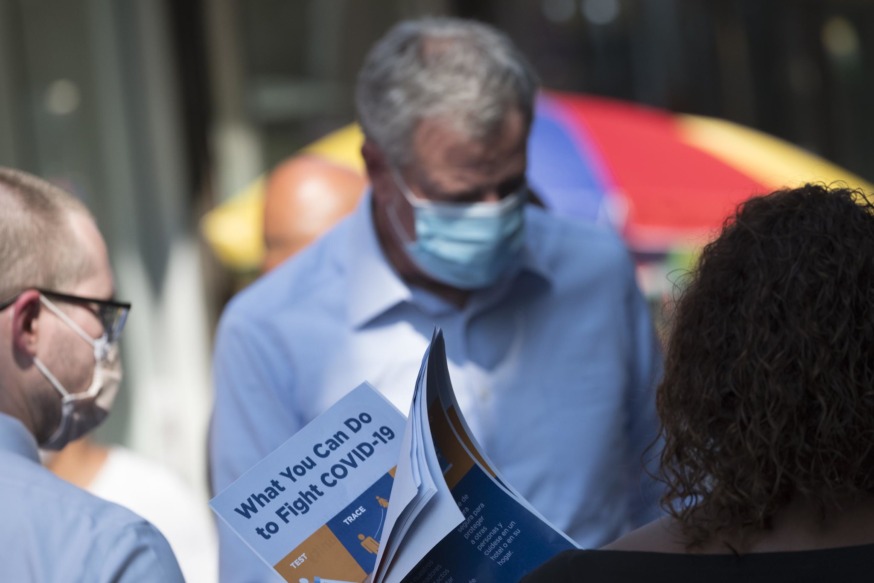
(Ed Reed/Mayoral Photography Office)
Sept. 28, 2020 By Allie Griffin
Coronavirus cases are continuing to surge at an alarming rate in Kew Gardens and have now begun to spread into adjacent neighborhoods such as Rego Park and Kew Garden Hills, new data shows.
City health officials identified Kew Gardens, Far Rockaway as well as six Brooklyn neighborhoods as COVID-19 clusters last week. Officials said Sunday that cases in those eight cluster neighborhoods have since risen and are now spilling into adjacent zip codes–such as Rego Park and Kew Gardens Hills – Pomonok.
The latest data shows Kew Gardens has a COVID-19 positivity rate of 3.82 percent and Far Rockaway-Edgemere has a positivity rate of 3.9 percent. The average rate across the city is less than 1 percent.
Zip code data shows the virus is spreading to neighboring communities. The city has identified other neighborhoods — including Rego Park and Kew Gardens Hills — that have an increased growth of cases and positivity rates between 2 and 3 percent based.
Rego Park has a positivity rate of 2.34 percent and Kew Gardens Hills – Pomonok has a positivity rate of 2.71 percent, the health department said Sunday.
The other six cluster neighborhoods are in Brooklyn — primarily in Hasidic Jewish neighborhoods. Gravesend-Homecrest has the highest COVID positivity rate citywide at 6.75 percent.
The eight original clusters now account for more than 23 percent of new cases citywide over the past two weeks despite representing just under 7 percent of the city’s population, the health department said.
The city has warned that it could begin rolling back its reopening plan in the problem areas to prevent the virus from spreading. Health officials could shutdown nonessential businesses and limit gatherings to 10 people if the coronavirus cases continue to rise.
The health department is also monitoring emergency department visits, hospitalizations and intensive care unit admissions.
The department said an increase in hospital visits generally follows an increase in COVID-19 cases. At least one hospital in Queens and two in Brooklyn are starting to see an uptick in the number of hospitalized patients, data shows.
5 Comments

They don’t care.
Why not go after the protestors, who assemble at the drop of a hat and march all over the place—not social distancing. Or the clubs allowing parties indoors, or any of the other violators? Yes it has to be the Jews. They won’t revolt over mistreatment like this-they are the easy target. Blame them
You’re saying the government should force everyone to wear masks and socially distance? Well I think they should “liberate” themselves. What a sheep, sad!
Well, at least we have one thing going for us in Astoria.
I see so many people coming out from religious services without masks in Kew Gardens that it was only a matter of time. They should be ashamed of themselves!